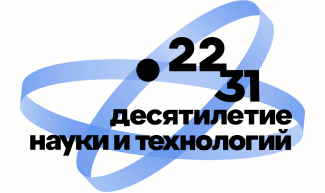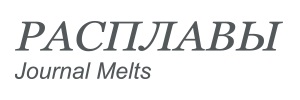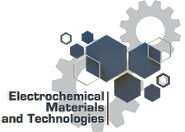IHTE UB RAS gained a great success at the competition “Implementation of fundamental scientific studies and scientific research in top priority investigation fields” organized by the Russian Science Foundation. Out of 5 projects sent 3 projects earned an award. These projects are “projects -pioneers”, despite of a vast experience in participation in different Russian and International Competitions. Each project grant amounts from 5 to 6 mln of roubles per year to conduct fundamental scientific research in 2016-2018 years with a possible prolongation to 1 or 2 years depending on the field of study.
Within the framework of this competition a number of scientific studies will be performed to solve specific problems of one of the scientific priorities, which is chosen by a Board of Trustees and is determined by social economic development of the county. In addition, a desired result of the research should be of an international value and should contribute to the solvation of key problems.
Institute of high Temperature Electrochemistry has been in charge of the studies on Solid Oxide Conductors for more than 50 years. During these years a large theoretic and experimental base was accumulated. These studies are carried out in the Laboratory of Solid Oxide Fuel Cells and are aimed at the study of processes in the cells at various electrolytes, in the Laboratory of Electrochemical Material Science, where the problems of material science are solved. The Laboratory of Electrode Processes has a significant experience in electrodeposition of polycrystalline refractory metals deposits and silicon in ionic melts. That is why the requests to gain the project were sent to the scientific priority П10 “Electrochemical and thermoelectric technologies in energetics”.
The Project “Development of novel membrane materials with protonic conductivity and highly effective electric catalysts for the membrane-electrode block” headed by Demin A.K. is aimed at creation of new oxide proton-conducting materials (cerato-zirconates, indates, niobates and yttrates of alkali elements and lanthanides) and study of their possible implementation as electrolytes in Solid Oxide Fuel Cells. Data on the properties of the new proton electrolytes, electrode materials compatible with such electrolytes and regularities of electrochemical processes in the systems with new electrolytes will be obtained. New model electrochemical cells will be made and electro- and mass-transition processes will be studied in these cells. The data acquired will allow to assess the applicability of new materials in solid oxide cells.
The Project “Fundamental basics of the electrochemical synthesis of novel electrode silicon-based materials” leaded by Zaykov Yu.P. is devoted to the acquisition of fundamental bases of new electrochemical processes of silicon nano- and two-dimensional materials (silicon) creation. This allows us to develop lithium-ionic batteries of new generation. It will considerably enhance the understanding of silicon clusters nucleation and growth mechanisms, mechanisms of silicon electrodeposition at perspective materials. Within the framework of the project the mechanisms and regularities, which allow forming silicon-based nanomaterials with a controlled structure, morphology, phase and chemical composition will be detected . A massive improvement of characteristics of such devices is going to be reached by creation of new electrode silicon-based materials.
The Project ”Development of scientific bases and creation of navel highly effective proton-conducting membranes and electrode materials for electrochemical usage in hydrogen and renewable energy sector” headed by Ananyev M.V. is focused on the creation of fundamental bases of synthesis of new proton-conducting electrolytes and electrode materials based on lanthanum scandates and zirconates with a perovskite and pirochlorine structures, as well as study of their physical-chemical properties. The information on the impact of chemical composition, crystalline lattice, defect structure, composition and grain faces structures, effects of local structure changes, disordering effects on the ionic and electronic carriers’ transition constant in the set objects, as well as on the degradation processes in the chosen materials using unique methods of oxygen and hydrogen isotope exchange, nuclear magnetic resonance and transmission electronic microscopy are planned to be obtained. These data allows us to obtain fundamental knowledge in the material science of oxide materials with proton conductivity.
We congratulate the winners and wish them good luck!




